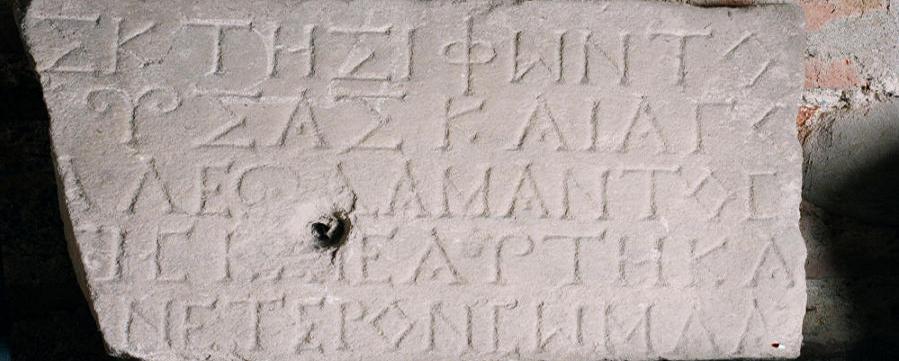Δορδανάς Στράτος
«ΣΤΡΑΤΙΩΤΙΚΗ ΑΝΑΓΚΑΙΟΤΗΤΑ Η ΠΟΛΙΤΙΚΗ ΣΚΟΠΙΜΟΤΗΤΑ; ΤΟ ΡΟΥΠΕΛ, ΟΙ ΚΕΝΤΡΙΚΕΣ ΔΥΝΑΜΕΙΣ ΚΑΙ Η ΚΥΒΕΡΝΗΣΗ ΣΚΟΥΛΟΥΔΗ»
Η παράδοση των οχυρών του Ρούπελ στους Γερμανοβουλγάρους ή για την ακρίβεια στους Βουλγάρους σηματοδοτεί την απαρχή μιας περιόδου σημαντικών εξελίξεων στο εσωτερικό της Ελλάδας, καθώς αφενός η ωμή παρέμβαση της Αντάντ και αφετέρου η σθεναρή αντίσταση του βασιλιά και των γερμανόφιλων κύκλων οδήγησαν στα Νοεμβριανά του 1916, στην κορύφωση δηλαδή του Εθνικού Διχασμού.
Στην πράξη, με την αποβίβαση των δυνάμεων της Αντάντ στη Θεσσαλονίκη στις 6 Οκτωβρίου 1915 εγκαινιάστηκε η πρώτη σοβαρή προσβολή της ελληνικής ουδετερότητας και ταυτόχρονα η καταπάτηση της εθνικής ακεραιότητας, για να συνοδευτεί αμέσως μετά την κατάρρευση της Σερβίας από τις απειλές εκ μέρους των Κεντρικών Αυτοκρατοριών και του βαλκάνιου συμμάχου τους για την ανάληψη μιας επιχείρησης εναντίον της Μακεδονίας με στόχο την κατάληψη της Θεσσαλονίκης.
Η ματαίωση των σχεδίων αυτών έδωσε τη θέση της στην απόφαση του Βερολίνου για μια περιορισμένης έκτασης εισβολή στο ελληνικό έδαφος, αφού θα εξασφαλιζόταν η συγκατάθεση της ελληνικής κυβέρνησης και του βασιλιά και θα παρουσιαζόταν ως στρατιωτικά αναγκαία έναντι των προκλήσεων της Αντάντ.
Η παρούσα εισήγηση θα επιχειρήσει να προσεγγίσει ιστοριογραφικά το μείζον ζήτημα της παράδοσης του Ρούπελ, αξιολογώντας τις στρατιωτικές και πολιτικές παραμέτρους που προτάθηκαν ως επιχειρήματα από τους βενιζελικούς και τους αντιβενιζελικούς για να συγκροτήσουν κάθε φορά έναν λόγο περί εθνικής προδοσίας.
Σε κάθε περίπτωση το Ρούπελ εγγράφηκε στην εθνική ιστοριογραφία ως ένα αδιαμφισβήτητο γεγονός εθνικής ταπείνωσης που επιβάρυνε στον μέγιστο βαθμό την εσωτερική πολιτική ζωή, έως ότου η παράδοση της Καβάλας ήρθε λίγο αργότερα να ανατρέψει εξ ολοκλήρου τα κέρδη της συνθήκης του Βουκουρεστίου.
ΔΟΡΔΑΝΑΣ ΣΤΡΑΤΟΣ
«Military necessity or political expediency? Fort Rupel, the Central Powers and the Skouloudi government»
Surrendering Fort Rupel to the Germano-Bulgarian forces -or more precisely- to the Bulgarian troops marks the beginning of a period of significant developments within Greece. The blatant intervention of the Entente, on the one hand, and the strong resistance of the King and the pro-German circles, on the other, led to the November Events (Noemvriana) of 1916, which were the peak of the National Schism. In effect, the first expeditionary forces of the Entente disembarking in Thessaloniki on October 6, 1915, was the initial violation of Greek neutrality and at the same time an infringement of national integrity. Shortly after the fall of Serbia and in response to the Entente’s actions, the Central Powers and their Balkan ally began to plan an attack on Macedonia with the aim of capturing Thessaloniki. On the cancellation of these plans, Berlin decided on a limited territorial invasion of Greece as a military necessity against the provocations of the Entente, as soon as the Greek government and the king would give their consent. This paper aims to present a historiographical approach to the major issue of the surrender of Fort Rupel, by assessing the military and political parameters of the arguments that were put forward by both the Venizelists and the anti-Venizelists, which led to each side accusing the other of national betrayal. Invariably, the surrender of the Rupel fortifications has been registered in the historiography of Greece as an event of national humiliation, which aggravated internal political life to the fullest extent. A short time later, the surrender of Kavala totally overturned the gains of the Treaty of Bucharest









